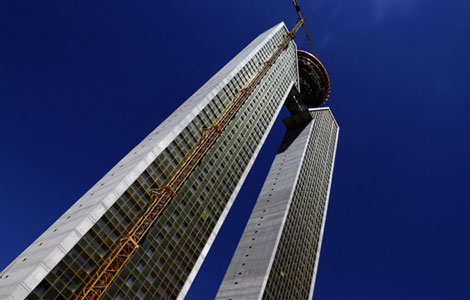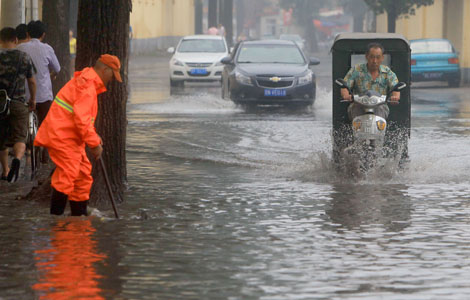Birth of a new communications order
Updated: 2013-08-12 13:41
By Herman Wasserman (China Daily)
|
||||||||
Jyrki Kakonen, a professor at the University of Tampere in Finland, said the rise of the BRICS countries is a symptom of the end of globalization as Westernization. The process of globalization is changing, flowing now from the rest to the West so the West will have to adapt. But what kind of international order the BRICS states want to build remains unclear.
There is wide diversity within the BRICS group, with no common denominator other than being against the dominance of the United States. This anti-US attitude is, however, not enough to provide cohesion among the group. Kakonen says the absence of an Islamic country in BRICS prevents it from representing the whole of the Global South as a new international order and not merely an economic formation.
It would also be a mistake to view the BRICS countries as internally homogenous nation-states each with one stable media system. Within the BRICS countries themselves there are big differences and sometimes tensions between various media models and practices.
In Brazil, for example, professional journalists are experiencing an identity crisis as the rise of new media demands new functions from them. Raquel Paiva de Araujo Soares and Muniz Sodre Cabral, professors at the Federal University of Rio de Janeiro, talked about a generation gap between journalists in Brazil, where young journalists are not as interested as the older generations was in being champions of civil liberties.
India is another BRICS country whose media system displays internal differences. Sanjay Barthur, a professor at the Central University in Tamil Nadu, India, told of how the media and entertainment sector in India is growing exponentially. However, that growth should not necessarily be seen as an indicator of greater diversity in the media.
Daya Thussu and Savyasaachi Jain, professors at the University of Westminster in the UK, stressed the size and diversity of India's media audiences and the vibrant media sector serving them. Unlike in the West, where the media is struggling economically, media in India is booming.

The author is deputy head of the School of Journalism and Media Studies, Rhodes University, South Africa. The views do not necessarily reflect those of China Daily.

 Questioning China's achievements
Questioning China's achievements
 Celebrating Chinese Valentine's Day
Celebrating Chinese Valentine's Day
 Spanish skyscraper forgets elevator
Spanish skyscraper forgets elevator
 Beijing rainstorm cancels flights, kills airport worker
Beijing rainstorm cancels flights, kills airport worker
 Highs and lows of marine rescue
Highs and lows of marine rescue
 Lin Dan wins Olympic final rematch over injured Lee
Lin Dan wins Olympic final rematch over injured Lee
 Northeast China braces for major floods
Northeast China braces for major floods
 High-heeled, well heeled
High-heeled, well heeled
Most Viewed
Editor's Picks

|

|

|

|

|

|
Today's Top News
6,007 probed for duty dereliction
Fonterra gets further hit as it recalls milk powder
Chinese take a shine to fine china from UK
New green policy gives industries a big boost
Snowden's father to leave for Russia
Northeast China braces for major floods
Launches highlight India's ambitions
Chinese put on alert in Afghanistan
US Weekly

|

|





